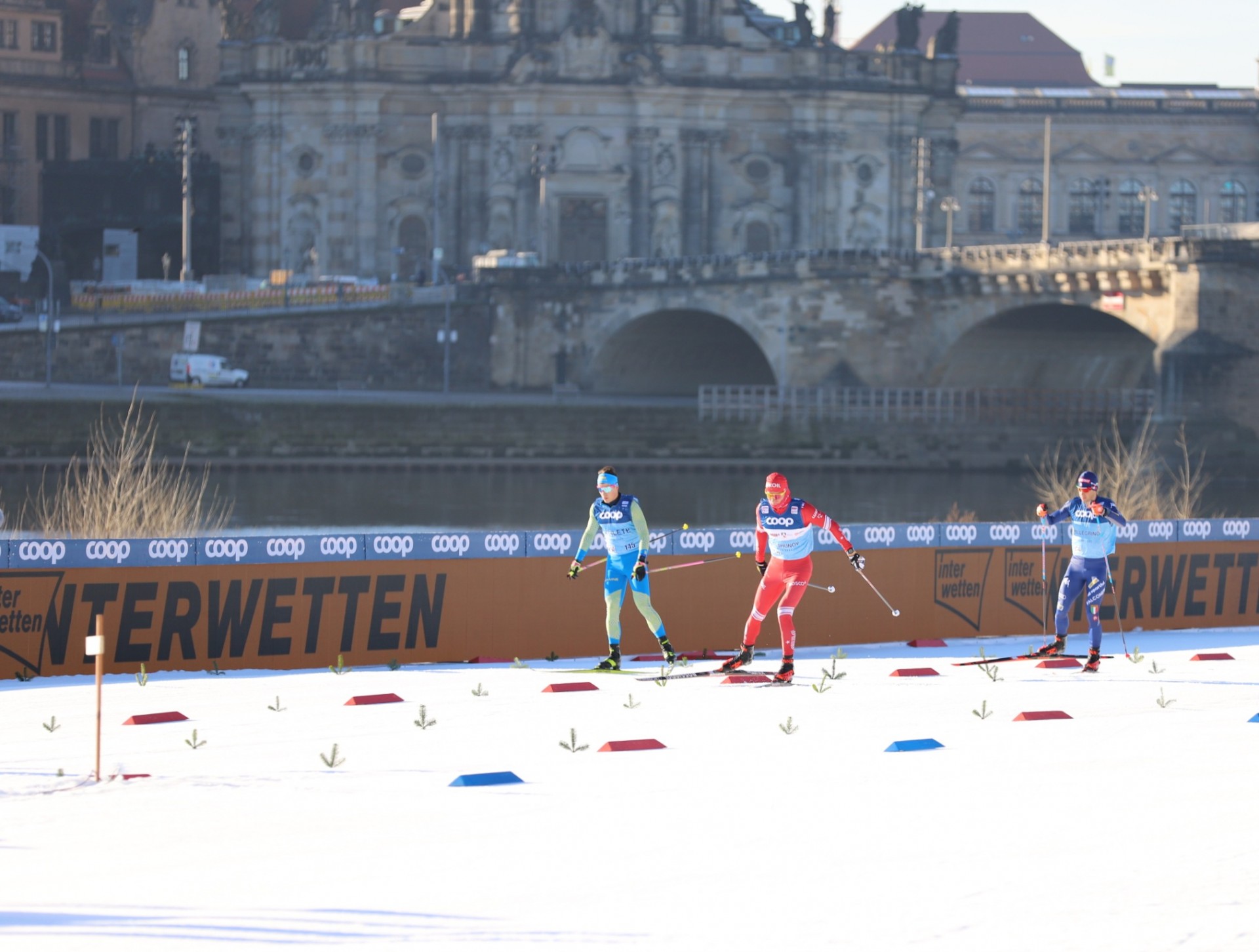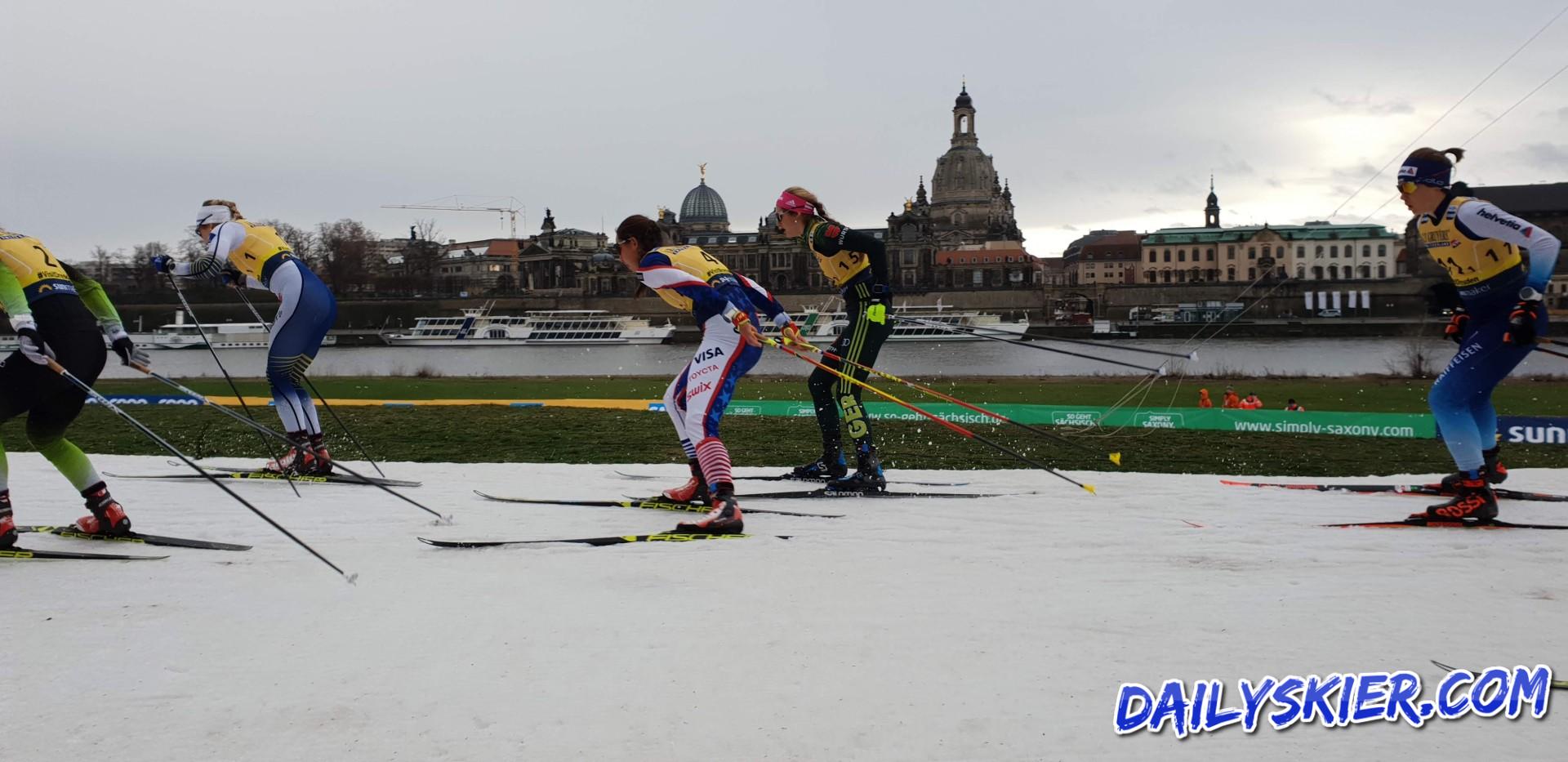
Es ist vorbei.
The FIS World Cup just said goodbye to the great city of Dresden after five seasons.
It was a valiant and in many ways interesting try.
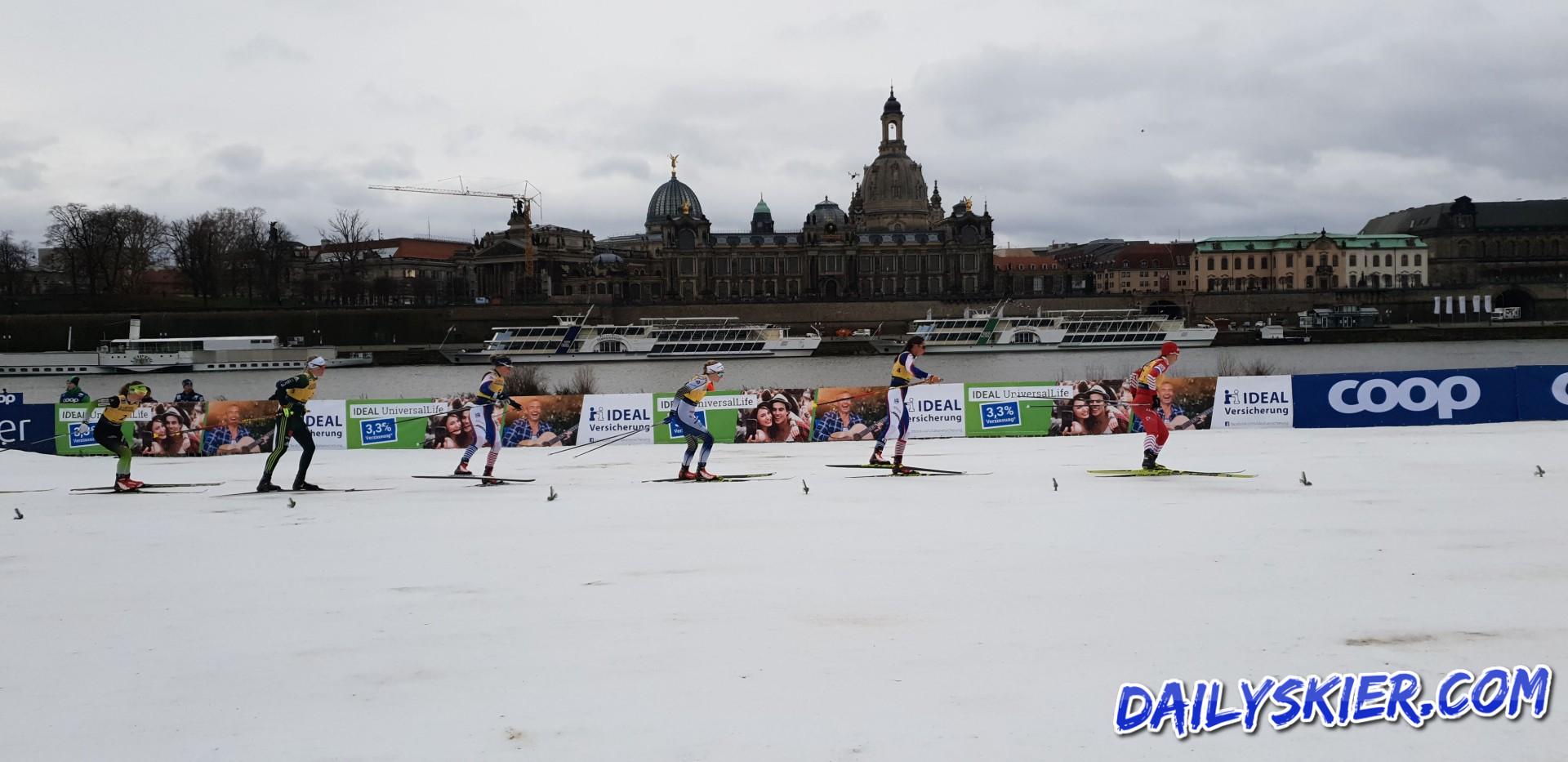
A brainchild of local television personalities, from the start it was set up to be a high quality visual product.
It was actively supported by local authorities – first and foremost by Saxony’s prime minister Michael Kretschmer – we remember how he used to come to expect the readiness of the snow tracks and thank the volunteers personally at the beginning.
It had a budget to envy, being supported through tourism promotion funds and by local businesses. It had a dedicated crew of people working to make it happen all year around ( most organising committees work part time)
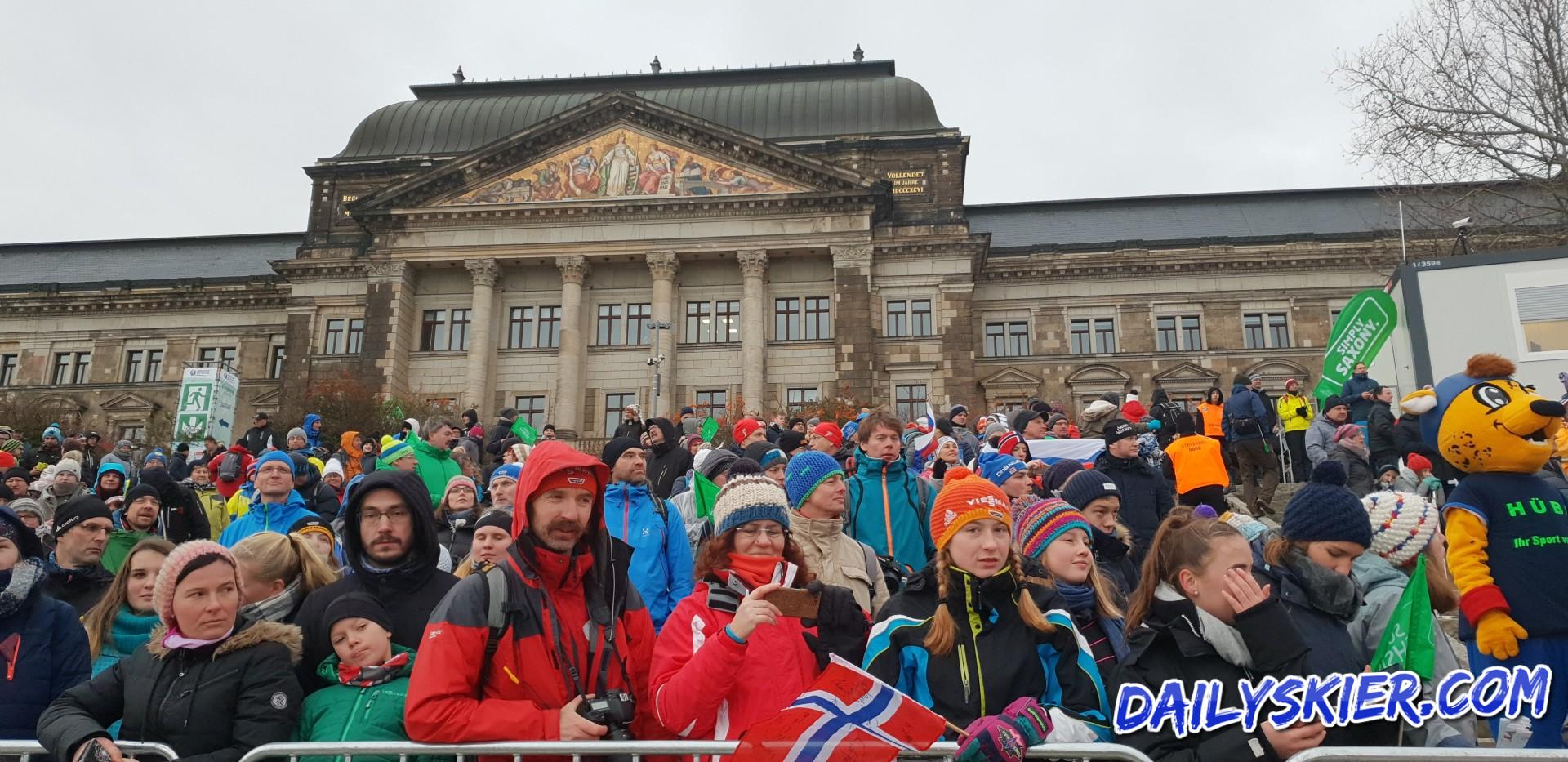
The first editions of the Weltcup Dresden featured thousands of cheering spectators ( remember, Saxony is a home to such famed winter sport centers as Oberwiesenthal, Altenberg and Klingenthal) and the VIP tent looked like latest edition in Who-is-who in local high society.

None of that was present yesterday – and the reason is Covid-19, Saxony is particularly heavily hit by it.
The athletes themselves had mixed feelings about Dresden – as you would imagine among hundreds of women and men with distinctly different tastes. Some were unhappy with artificial snow, often raining conditions – others enjoyed fast tracks that demand the most honed technique and the muscular fitness possible (winners of Dresden always, always were among the best technical skiers in the world!)
All, however, enjoyed walking proximity of the tracks to the swanky hotel housing World Cup skiers. More importantly,perhaps, all enjoyed staying in the middle of one of the cultural capitals of Europe – as opposed to usual remote villages where skiers tend to spend most of their life and career.
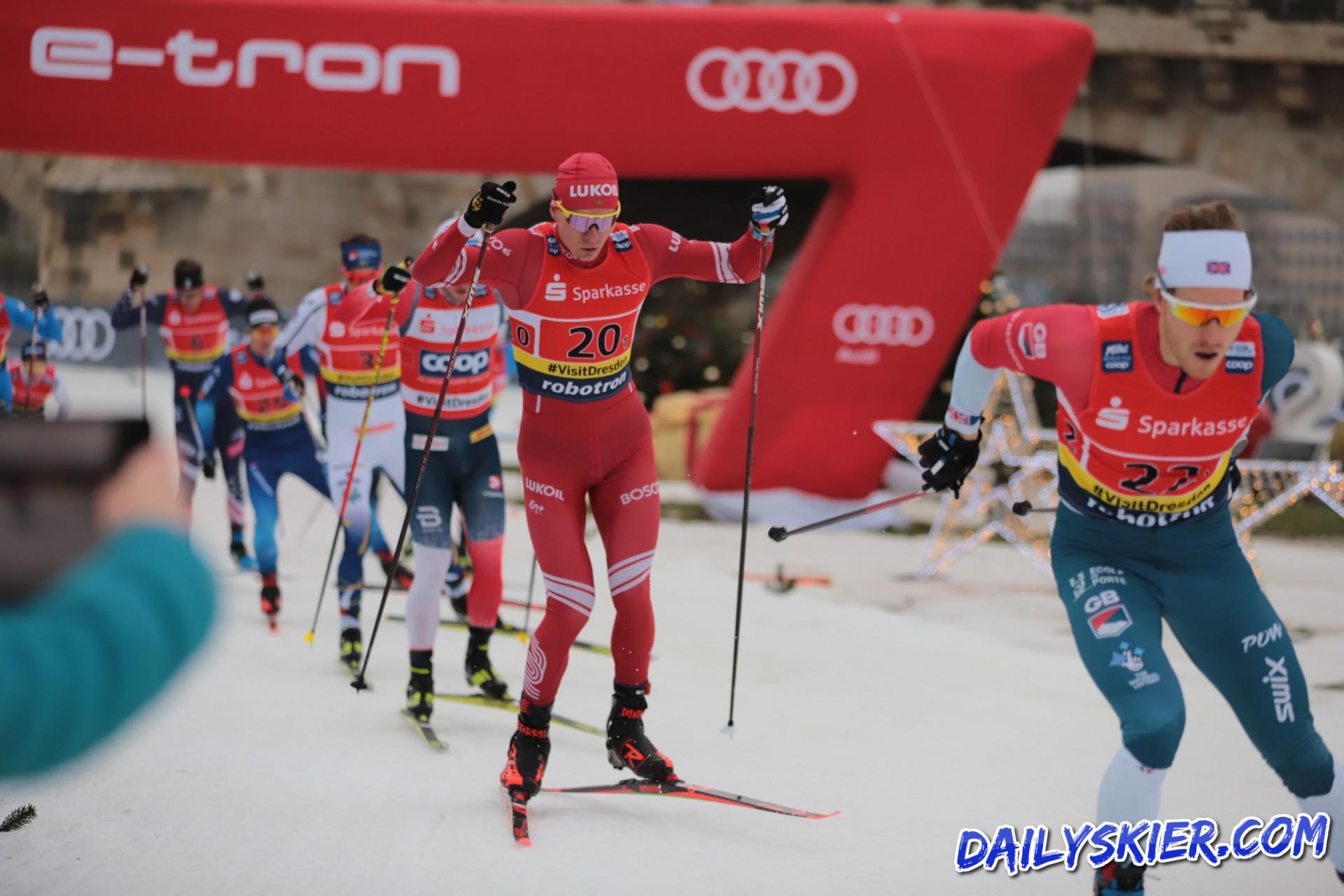
As a television product, city sprints are far surpassing traditional ski races – lesser costs, more action, better rhythm for advertising slots. And since television carries the bulk of the associated costs for competitions ( and athlete prizes) through rights’ purchases, it has to be listened to, old-school purists notwithstanding.
The FIS World Cup schedule for 2022/23 is full of gaping holes still ( compare that to the biathlon where the schedule is set & published at least four seasons ahead!)
We sincerely hope there will be more city sprints – Dresden had proven it could work, it should work. If only not for Corona…as to Dresden – many thanks and goodbye, hope to see you again at some point!
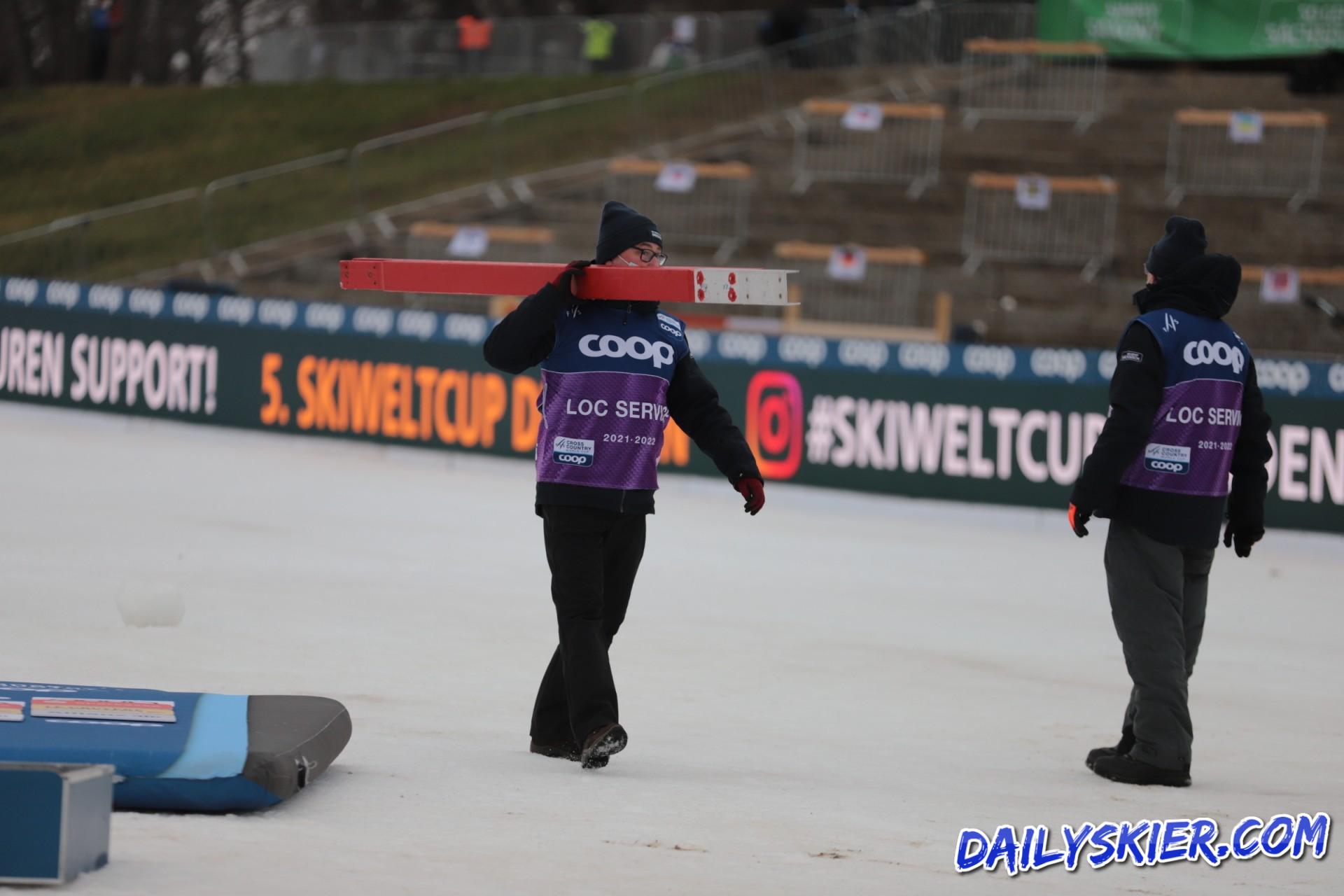
Related Posts
- Weltcup Dresden: Despite Everything
- Xcskiing 2022 – a list of woes goes long
- Ustiugov deserves Olympic medal more than anybody else in cross-country skiing – as a compensation for the 2018 Olympics that never happened in his career – Markus Cramer
- Meet Dinigeer Yilamujiang, future star of xcskiing. She lit the flame of the Olympics today – and she will light up your hearts with her track performances very, very soon.
- Beijing Olympics ski tracks – what are they like? Tough with a capital T , says the man in the know
